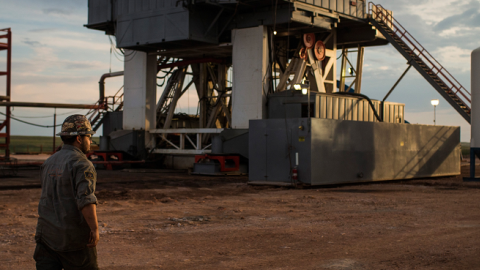Oh, woe! Ebola has come to America and 150 people from infected countries are landing here every day. ISIS is battering the Kurds, to whom we have not sent the weapons we promised, and will chase the Iraqi army out of Baghdad as soon as they finish taking over Kobani. Europe is headed into still another recession, its banks loaded down with bad loans as next week's stress tests approach, Italy and France are basket cases, the mighty German growth machine is stalled, the central bank paralyzed by the inability of EU members to persuade German chancellor Angela Merkel to have mercy on their slumping economies. Three of the four once-touted BRICs are in trouble. Brazil, the world's seventh largest economy, is in recession. Russia has bitten off a piece of Ukraine, whetting Vladimir Putin's appetite for the Baltics despite an economy in chaos as a result of sanctions imposed by the West. China is in the midst of a property bust, another purge of enemies of the state, and experiencing a growth rate that has shrunk from over 7 to 6 percent (official data) or 3 percent (outside experts). Japan is reeling from the effect of tax increases. Our political class has no idea what to do about any of these problems. Panic. Sell, sell.
Or don't. The world just might be too, too much with us, distracting attention from America's underlying strengths and enormous resilience. According to the latest report of Goldman Sachs's Private Wealth Management Investment Strategy Group, "The notion of U.S. pre-eminence ... has gained momentum in recent years. Since our 2020 Outlook ... we have held the view that the financial crisis 'has not dealt a fatal blow to the US as the preeminent economic and geopolitical power.'" It's worth taking a look at what the Goldman Sachs team calls "the unparalleled strengths and resilience of the US economy and US institutions." Those advantages account for a widening gap between per-capita GDP in America and in China and the eurozone.
The easiest one to understand is the importance of our abundant supply of energy -- oil, low-cost natural gas, and coal.
That resource base might be there because America is blessed, or merely lucky, but full access to it is a testament to American technological skills. Fracking enables us to tap resources that until recently could not be reached economically, making America the world's largest producer of oil and natural gas liquids, and ere long converting the U.S. from a net oil and natural gas importer to an exporter. More important, our newly available abundance is driving down the price of gasoline, putting an average of $600 into the pockets of every household just as holiday-season promotions hit the shops, among other things inviting the kiddies to pick and lay-away their must-have toys right now. And because of what Ed Morse, head of Global Commodity Research at Citigroup, calls the "gritty robustness of our production base" anyone who thinks $80 per barrel crude will slow U.S. production are going to be unpleasantly surprised.
More difficult to quantify is America's leadership in the innovation derby. While Europe gropes for ways to rein in what has come to be called "the disrupters," we accord them the status of heroes. Joseph Schumpeter, the great European economist who found a congenial home in America, at Harvard University, taught that "a perennial gale of creative destruction ... is the essential fact about capitalism." While the EU scrambles for ways to protect existing industries and technologies from the competition of the Googles, Amazons, and Ubers, America accords them virtually free rein. Yes, there are powerful change-resisters in America, but in the long run they find that their only choices are to adapt or disappear. Historian John Steele Gordon puts it this way, "Virtually every major development in technology in the twentieth century ... originated in the United States or was principally industrialized and turned into consumer products here." No surprise that the Chinese are stealing American intellectual property, rather than the other way around.
Then there is demography, which is widely said to be a nation's destiny. Nicholas Eberstadt, a scholar at the American Enterprise Institute and arguably the nation's leading demographer, recently surveyed the world's "Demographic Future," and writes in Foreign Affairs, "The United States will avoid the demographic stagnation and decline that faces most other OECD [high-income] countries ... Unlike all other affluent countries, the United States can expect a growing pool of working-age people ... and it can expect a slower pace of population aging." The U.S. population is growing, infused by young immigrants, legal and illegal, many (but unfortunately not all) of whom are expected to make a net contribution to national wealth. Over 80 percent of Americans live in urban areas, compared with about 50 percent worldwide, which suggests the much higher rate of innovation resulting from the low cost of interaction among creative elites. Eberstadt notes, "Urban centers are typically the hubs of economic growth." Think San Francisco and technology, Houston and oil, New York City and sheer dynamic energy.
Not to be omitted from the list are America's other assets:
* According to The Times Higher Education Supplement's World University Rankings -- a British publication that cannot be accused of pro-American bias -- seven of the world's top ten universities and fifteen of the top twenty are here in the United States.
* The dollar remains and will long remain the world's reserve currency, and the currency to which the world flees in times of crisis.
* America remains what President Obama, who cannot be accused of lusting after a large global U.S. global footprint, in 2012 called "the one indispensable nation in world affairs", a statement he is reluctantly realizing was truer than he then imagined.
* Thanks to the wisdom of our Founding Fathers, America, in the words of Goldman Sachs' analysts, possesses "a relatively robust system of government with monetary and fiscal union and a centralized system of government with plenty of independence at the state and local level."
It hardly needs saying that we are not perfect. Political gridlock, executive-branch challenges to the separation of powers, too many discouraged workers and rising inequality are among the ills that have a majority of Americans believing we are on the wrong track. But keep in mind the resilience of America, what Winston Churchill called our "gleaming flash of resolve" when faced with crises of the sort we now confront.
















